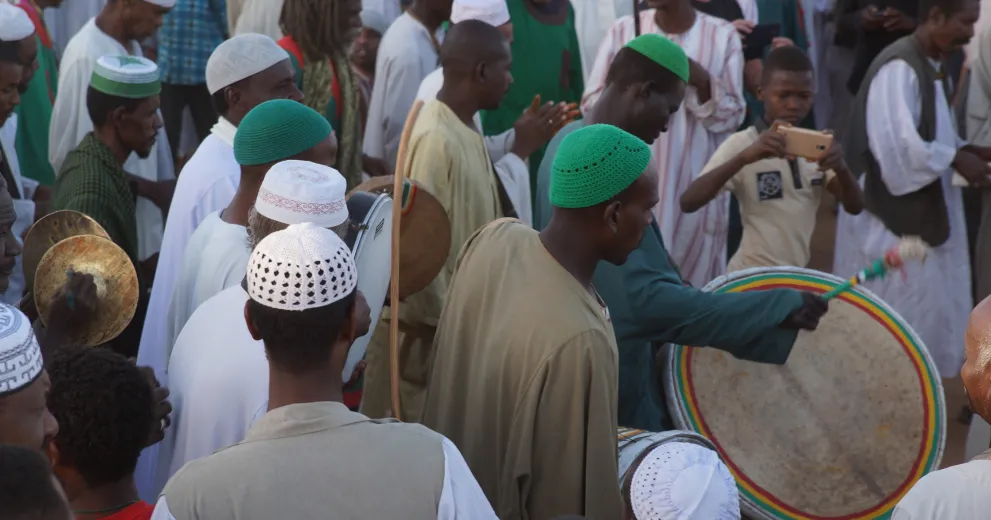
Islam in Sudan
Sudan today
97% of Sudan's population are Muslim, with the vast majority adhering to the Sunni denomination. Islam first arrived in the Middle Nile valley as part of the Arab expansion after the death of prophet Mohamed in the 7th century. It is little known that the medieval Nubian kingdoms were the only power that successfully fought off the Arab troops who overran all North Africa and Spain before they were stopped in the Battle of Tours and Poitiers by Charles Martel in 732. Only with the decline of the Nubian kingdoms from the 14th century, did Islam start to become the dominant religion of the Middle Nile.
An important aspect of Sudanese Islam is Sufism, which first came to the region with missionaries from the Middle East, North Africa and the Arabian Peninsula in the 16th century. Central to Sufism is the idea of a mystical path to God which is separate from the orthodox Muslim prayer ritual. Sufis organise themselves in orders or brotherhoods, headed by a charismatic leader. These sheikhs act as intercessors with God and can reach something approaching sainthood on death. Their tombs, and other places associated with them, are regarded as sources of baraka, blessing and attract crowds of supplicants. Architecturally, they are marked by high domed superstructures, called qubba, which can be seen everywhere throughout Sudan.
Sufism in Sudan is said to have incorporated some non-Muslim African traditions and to represent a popular as opposed to orthodox Islam. It is also considered to be a very tolerant persuasion, and most Sudanese indeed have a relaxed view towards their own religion and towards people of other persuasions. While support for radical movements has not been widespread in the past, Salafism is increasing also in Sudan, not least through the numerous migrant workers returning from Saudi Arabia.
Divorced from personal beliefs, Islam has become deeply politicised in Sudan. The country operates sharia law, which had first been introduced by then president Jafar an-Numairi in 1983. There exist close ties between Sufi brotherhoods and certain political parties. Two other main political forces are the followers of the Mahdist movement, the Ansar, which developed out of the Mahdist uprising in the late 19th century, and the revivalist Muslim Brotherhood, which has gained ground in Sudan since the 1960s, exerting influence through its political wing, the National Islamic Front.